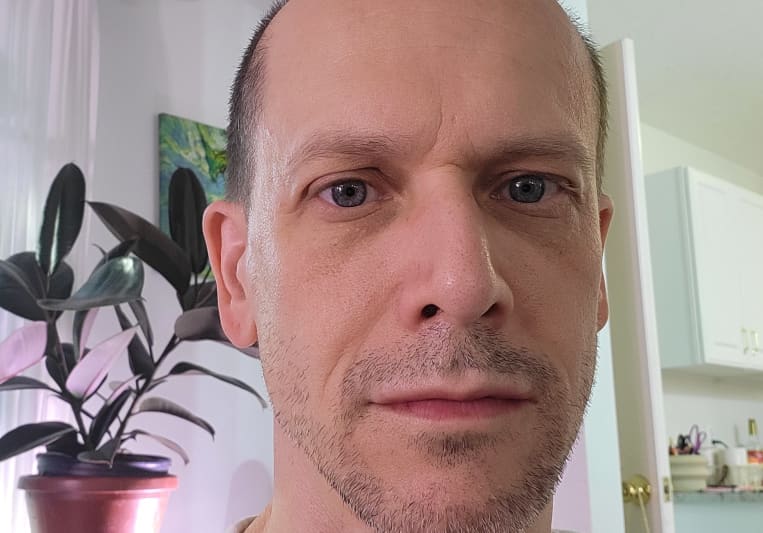
You may know me from my decades at Silber Records & Small Life Form & Remora, if you like what I do you like what I do I can work with you.
Since the 1990s I have been mixing & mastering music for my own projects as well as countless others. Ambient, post rock, shoegaze, post apocalyptic pop, noise, lofi, slowcore, etc. Remora, Vlor, Small Life Form, Muscle Mass, & you can hear my sonic fingerprints throughout most of the Silber Records catalog. If you want my fingerprints on your music, we can work together.
I'd love to hear about your project. Click the 'Contact' button above to get in touch.
Interview with Brian John Mitchell
Q: Tell us about a project you worked on you are especially proud of and why. What was your role?
A: Each year for quite a while now I have put together experimental drone compilations called Droneuary. Sequencing them & adjusting the volumes & dynamics of different pieces by different artists is a fun & rewarding challenge.
Q: What are you working on at the moment?
A: Mixing & recording a project that is starting with ambient minimalist drum loops building into experimental post punk as long distance collaboration.
Q: Is there anyone on SoundBetter you know and would recommend to your clients?
A: New to this community, but I like Brian McKenzie though we work in totally different ways.
Q: Analog or digital and why?
A: For editing digital. Doing it analog is time consuming and cost prohibitive for most clients. For synths & drums i like both. For guitars I like the physicality of equipment.
Q: What's your 'promise' to your clients?
A: To not waste their time or my time.
Q: What do you like most about your job?
A: Making something sound better in a way people can't quite describe.
Q: What questions do customers most commonly ask you? What's your answer?
A: "What's your most important piece of equipment?" The answer is my ears.
Q: What's the biggest misconception about what you do?
A: That I can make someone not ready to record in the first place sound commercial radio ready.
Q: What questions do you ask prospective clients?
A: What are your goals for the next five years? What are your goals for this project?
Q: What advice do you have for a customer looking to hire a provider like you?
A: Have a conversation. If you can't communicate with someone, you shouldn't work with them.
Q: If you were on a desert island and could take just 5 pieces of gear, what would they be?
A: Some type of loop pedal (probably a DL4), a Rat Deucetone, a guitar, a bit crusher, & one of those portable 8 track recorders. For software I would bring Sound Forge, Acid, Little Drummer Boy, Tap Tempo, & Grainstorm.
Q: What was your career path? How long have you been doing this?
A: I started recording my own projects in 1993 & fell into doing more serious engineering on my own in 1998 because I couldn't find any collaborators that understood my goals.
Q: How would you describe your style?
A: Respectful. I try to bring things to a better place without transforming it into something new. Though i can do that on request.
Q: Which artist would you like to work with and why?
A: Iggy Pop. He has done a lot of fairly out music for decades & I would love to hear his take in genres he has yet to go deeply into.
Q: Can you share one music production tip?
A: Listen. Listen to the music. Listen to the artist.
Q: What type of music do you usually work on?
A: Ambient, experimental, post punk, & somehow singer-songwriter & lo-fi pop. Also podcasts.
Q: What's your strongest skill?
A: Willingness to experiment. For example on a recent remix I flipped a guitar hook to play in reverse dueling with the original track.
Q: What do you bring to a song?
A: My ears & fingerprints.
Q: What's your typical work process?
A: My work process generally starts with a conversation with an artist about their goals over the next few years as well as the specifics of a current project.
Q: Tell us about your studio setup.
A: These days I work all in the box. My belief is ears & experience are better than expensive equipment.
Q: What other musicians or music production professionals inspire you?
A: Anyone who has a real passion & excitement for their work gets me excited too.
Q: Describe the most common type of work you do for your clients.
A: Mixing, mastering, minor editing.
I try not to charge just by the job, but by how long a project will take. I do generally work quickly because I know what I am doing & charge $50 an hour.
- Small Life Form
- Vlor
- Remora
- My ears



